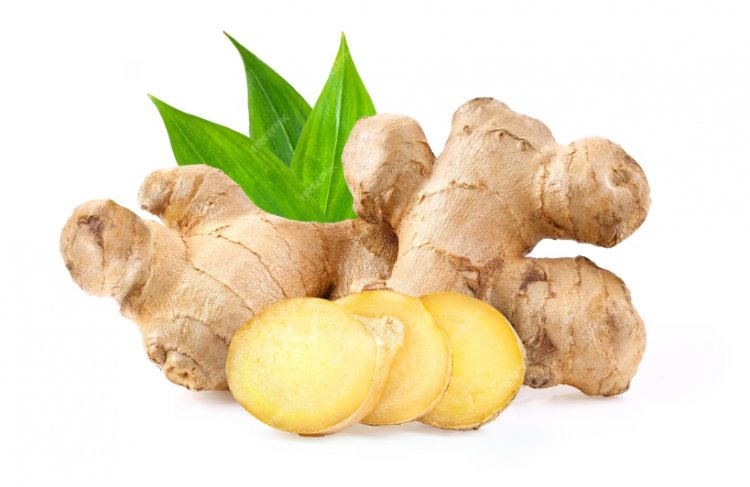The Health Benefits of Ginger: A Comprehensive Overview
Ginger, with its distinct aroma and zesty flavor, has been cherished for centuries not only as a culinary spice but also for its medicinal properties. Originating from the Zingiber officinale plant, ginger is a staple ingredient in various cuisines worldwide and has been extensively utilized in traditional medicine systems like Ayurveda and Traditional Chinese Medicine. Beyond its culinary applications, ginger offers a plethora of health benefits backed by scientific research. #GingerBenefits #HealthyLiving #NaturalRemedies #WellnessJourney #NutritionalHealth #AntiInflammatory #ImmuneSupport #HeartHealth #DigestiveHealth #HealthyEating #HolisticHealth #GingerNutrition #HerbalMedicine #HealthyLifestyle #CognitiveHealth #HealthTips #SpiceUpYourLife #GingerTea #HealthyDiet #HealthAndWellness #Superfood #HealthyChoices #HealthIsWealth #GingerRoot #HealingHerbs #HealthAwareness #MindBodySoul #GingerLove #EatingWell #NutritionFacts #HealthyRecipes

Nutritional Profile of Ginger:
Before delving into its health benefits, let's explore the nutritional composition of ginger. This underground rhizome is rich in bioactive compounds such as gingerol, shogaol, paradol, and zingerone, along with essential vitamins and minerals including vitamin C, vitamin B6, potassium, magnesium, and manganese. Its potent antioxidants contribute to its therapeutic properties.
Digestive Aid:
One of the most well-known uses of ginger is its effectiveness in alleviating digestive discomfort. Ginger stimulates saliva production and bile secretion, aiding in the digestion of food. It is particularly beneficial in reducing symptoms of nausea, vomiting, and motion sickness. Studies have demonstrated its efficacy in managing pregnancy-related nausea as well as chemotherapy-induced nausea.
Anti-Inflammatory and Pain Relief:
Ginger contains bioactive compounds that possess powerful anti-inflammatory properties. These compounds inhibit the production of inflammatory molecules, thereby reducing inflammation in the body. As a result, ginger is often recommended for individuals suffering from osteoarthritis, rheumatoid arthritis, and other inflammatory conditions. Additionally, ginger's analgesic properties make it effective in alleviating various types of pain, including menstrual pain and muscle soreness.
Immune Booster:
Regular consumption of ginger can strengthen the immune system and help the body ward off infections. Its antimicrobial properties inhibit the growth of harmful bacteria and viruses, thus reducing the risk of infections, especially in the respiratory tract. Ginger's high antioxidant content also plays a crucial role in neutralizing free radicals and protecting cells from oxidative damage, which can contribute to chronic diseases and aging.
Cardiovascular Health:
Ginger promotes heart health by lowering cholesterol levels and improving blood circulation. Studies suggest that ginger helps reduce LDL (bad) cholesterol and triglyceride levels while increasing HDL (good) cholesterol levels. Moreover, its antiplatelet aggregation properties prevent blood clot formation, reducing the risk of heart attacks and strokes. By maintaining healthy blood pressure levels, ginger supports overall cardiovascular function.
Blood Sugar Regulation:
For individuals with diabetes or those at risk of developing the condition, ginger may offer valuable support in managing blood sugar levels. Research indicates that ginger helps enhance insulin sensitivity and lower fasting blood sugar levels. By regulating glucose metabolism and improving lipid profiles, ginger contributes to better glycemic control and reduces the risk of diabetic complications.
Cognitive Function:
Emerging evidence suggests that ginger may have neuroprotective effects and support cognitive function. Its antioxidant and anti-inflammatory properties help combat oxidative stress and inflammation in the brain, which are implicated in neurodegenerative diseases like Alzheimer's and Parkinson's. While further research is needed, preliminary studies indicate that ginger supplementation may have potential in preserving cognitive health and mitigating age-related cognitive decline.
Culinary Uses and Precautions:
Incorporating ginger into your diet is simple and versatile. It can be consumed fresh, dried, powdered, or as a juice, adding flavor and nutritional benefits to various dishes, beverages, and desserts. However, excessive consumption of ginger may lead to gastrointestinal discomfort or interact with certain medications, particularly blood thinners. Therefore, it's advisable to consume ginger in moderation and consult with a healthcare professional, especially if you have any underlying health conditions or are taking medications.
Ginger is undoubtedly a powerhouse of health-promoting compounds, offering a myriad of benefits for overall well-being. From aiding digestion and reducing inflammation to boosting immunity and supporting heart health, its therapeutic properties are backed by centuries of traditional use and modern scientific research. By incorporating ginger into your diet and lifestyle, you can harness its potential to enhance your health and vitality.
In essence, ginger isn't just a spice—it's nature's remedy for a healthier, happier life.
Discover Coupoly's exclusive Medical Concierge Service, connecting you with renowned doctors and clinics, whether in the UK or abroad.
Get in Touch
Disclaimer:
The information provided in this article is for educational purposes only and should not be considered medical advice. If you have any health concerns or are experiencing symptoms, it is important to consult with a healthcare professional, such as a doctor or clinic, for proper diagnosis and treatment. Always seek the advice of your doctor or other qualified health provider with any questions you may have regarding a medical condition. Do not disregard professional medical advice or delay in seeking it because of something you have read in this article.
What's Your Reaction?





















